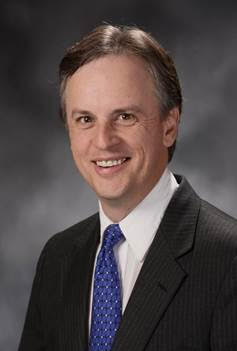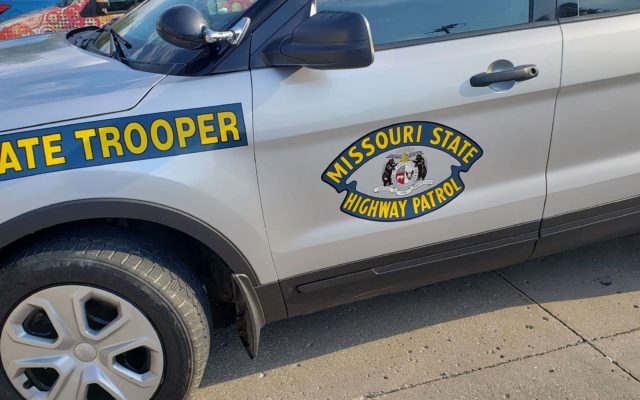THE EGGLESTON REPORT – ELECTION INTEGRITY PASSES

The 2022 regular legislative session ended on May 13 with 47 policy bills passed. 19 budget bills were also passed. In the coming weeks, I will cover some of these bills to inform you of the changes.
The first bill I will report on bolsters election integrity. Since I have been in the House, we have discussed making our election system fair and accurate to insure that everyone who is eligible to vote can, and to insure that no one’s legal vote is cancelled out by a fraudulent one from a bad actor trying to game the system. After some of the suspected election issues that arose from the 2020 presidential election, there was an even greater emphasis on finding and correcting any weaknesses Missouri may have in our election system.
Several bills were filed on this topic. Rep. McGaugh had HB2140. Sen. Crawford carried SB654. I filed HB1859, which made it out of the House and to the Senate. The bill that eventually passed on this topic was Rep. Simmons’ HB1878, which contains a combination of the ideas from all of the bills.
HB1878 does the following: 1) Specifies photo ID requirements for voting. Photo ID had been voted in by voters a few years ago, but was thrown out by the Supreme Court on a technicality. This language fixes the Supreme Court’s issue. 2) Authorizes the Secretary of State to audit voter registration lists and remove voters that have died, moved, or gone to prison. 3) Repeals the presidential primary election. In Missouri, Republican and Democrat caucuses choose their preferred presidential candidates, and the presidential primary election had no effect and was considered a waste of taxpayer money. 4) Requires voting machines to be “air-gapped”, meaning they cannot be connected to the internet or a network so they cannot be hacked. 5) Allows anyone registering to vote to declare their party. People often say, “I’m a registered Republican / Democrat”, but actually in Missouri that is not true since your party affiliation is not recorded when you register. With this bill, you could declare your party if you want to, but you don’t have to. 6) Requires the use of hand-marked paper ballots. Some areas were using iPads as voting machines, but paper ballots are considered more trustworthy in the event of a recount. 7) Eliminates drop boxes as a way of collecting absentee ballots. Drop boxes are unmanned collection boxes set on street corners, and are deemed an opportunity for fraud or vandalism.
Other provisions were also in the bill, but those were the highlights. This bill now sits on the governor’s desk, where he has the option to sign it or veto it.
As always, if you have any questions about any bill, please email me at [email protected]. Until next time, best wishes of safety, health, and prosperity to you and your family.
PICTURES FROM THE DISTRICT

Betty Kincaid (Gower) and David Farr (Stewartsville) visit the capitol
FROM THE CAPITOL NEWS DESK
Legislature Provides Record Funding Levels for K-12 Education (HB 2)
One week before the legislature wrapped up the 2022 legislative session, lawmakers gave final approval to a state operating budget that makes a record investment in K-12 education. The plan endorsed by the House and Senate provides a number of funding boosts for schools and teachers, and provides a total amount of funding in excess of $10 billion.
The House Budget Committee Chairman told his colleagues, “It is making an unprecedented investment in K-12 education in the State of Missouri and it is doing that in a couple different ways.”
More than $21 million was included to boost base teacher pay by $13,000 a year, to $38,000. The plan is a state/local split, with districts covering 30% of the cost for that increase. Another $37 million would restart the Career Ladder program, which rewards teachers who have at least five years of experience for taking on extra responsibilities and professional development opportunities.
The Chairman of the House Subcommittee on Education Appropriations, who also worked as a teacher for 32 years, shared his appreciation for the career ladder funding. He told his colleagues, “As somebody that received that once, I think there’s value in that for our students, not just teachers. Students get something out of those extra hours that are spent with them trying to make their lives better.”
School bussing would also see an increase over the current fiscal year’s budget. The Budget Committee Chairman noted, “There’s an additional $214 million appropriated there and that is, again, an unprecedented level of funding in that regard.”
Chairman of the House Subcommittee on Education Appropriations also expressed excitement for the increases to match programs to benefit career technical schools. Local districts could upgrade equipment or facilities if they come up with 25% or 50% of the cost. He said the increases would, “Help students with up-to-date equipment to [be able to] leave school and go into the workforce and see something that’s not 30, 40 years old in the shop at school, and get into a place and oh, it’s got a computer attached to it.”
The Education Appropriations Chairman and other lawmakers stressed that much of the funding in the spending plan comes from non-recurring sources, like federal stimulus and COVID response money. Part of the challenge in appropriating that money is in finding targets that will give schools the best chance of long-term benefit, rather than supporting programs that might go unfunded in future years when those funding sources aren’t available.
He said, “We just hope the people at the local level making those decisions are doing a good job making those decisions, spending this money that we have one-time to help reduce future costs so that those long-term items maybe with their local budgets, they can do a good job with.” He added, “One-time doesn’t automatically mean that it’s not going to be there next year, it’s just not making the guarantee to people that it’s going to be there. Honestly in my years of dealing with government before this, there is no guarantee. From year-to-year it’s a new budget and people making decisions at the local level, they know that too.”
The Fiscal Year 2023 budget would also provide grants or reimbursements of up to $1,500 to parents and guardians to cover tutoring and other services meant to catch up K-12 students who fell behind due to the COVID pandemic, and would provide pay increases to providers of the Parents as Teachers and First Steps programs.
That spending plan is now being reviewed by Governor Mike Parson. If he approves it, it will take effect July 1.
Stopping the Abuse of Eminent Domain (HB 2005)
A piece of legislation approved by the General Assembly during the final week of the 2022 session is meant to safeguard and strengthen private property protections for Missouri’s family farms. HB 2005 creates meaningful eminent domain reforms to ensure the process is used only for necessary public services that truly serve the common good.
The bill’s sponsor said he is proud “to protect Missouri family farmers, the constitution, and our core foundational principles.” He added, “It is long past time to reform our eminent domain statutes and provide foundational protection to property owners. This bill says Missouri is open for economic development, especially to improve our electrical grid, but it will not come on the backs of Missouri farmers, ranchers and landowners.”
The bill sponsor and supporters of the legislation stressed the urgency of the reforms, noting construction of new high voltage lines is expected to start this summer in Missouri. If the bill is signed into law, it will create new requirements for companies constructing the lines if they attempt to use eminent domain to obtain land easements. In these cases companies would be required to pay landowners 150% of the fair market value on their land. It also specifies that if the electric company does not obtain the financial commitments to complete the project within seven years, the land must be returned to the original owner. Additionally, it ensures the interests of farmers are represented in eminent domain proceedings by requiring one of the court-appointed appraisers to be a local farmer. The bill also requires the transmission lines to provide an amount of power to the state that is proportional to the length of the line running through Missouri.
The reforms have been a top priority for Missouri’s leading agriculture groups including the Missouri Cattlemen’s Association, Missouri Farm Bureau, Missouri Corn Growers Association, and Missouri Soybean Association.
Missouri’s Lieutenant Governor praised the bill saying it “puts an end to for-profit abuses of eminent domain. The need for these important reforms to protect our constitutional private property rights is more important than ever.”
The House Majority Floor Leader also hailed the bill as a “major step toward ensuring eminent domain laws are not abused for private gain.”
The bill now goes to the Governor’s desk where it will become law with his signature.


